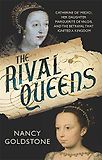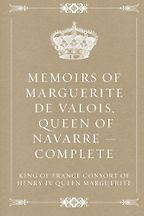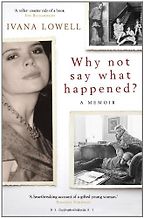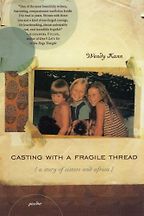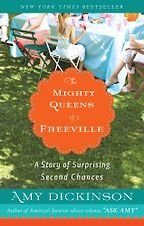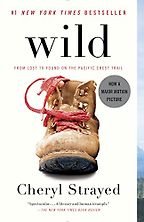Why did you choose in your own book to focus on Marguerite de Valois’ relationship with her mother Catherine de’ Medici?
I wanted to learn about Marguerite first of all because she had this fantastic life. I was very curious about whether the Alexandre Dumas portrait in La Reine Margot was accurate or not, and it turned out not to be. And there’s no understanding Marguerite without understanding Catherine. Also the other way around.
Marguerite has been dismissed through the centuries, in part because of the Alexandre Dumas novel. She was also dismissed by other historians, mostly male, who gave her a reputation as being a party girl who put her own sexual needs ahead of her kingdom and her subjects. This wasn’t true at all. Marguerite turned out to be very intelligent, certainly the best-educated and bravest member of her family. She was also a very strong political force at the time. In terms of her having multiple love affairs, all I can say is that her behaviour pales next to her brothers and her husband! Alone among them, she didn’t use sex as a weapon. She was just looking for fulfillment and love. And I’ve got to say I love that about her.
It speaks to a double standard that still exists today: that she’s the only one who’s seen as licentious. Her mother has an interesting sexual double-standard as well.
Catherine, in order to keep her male counterparts off guard would use her ladies in waiting, the so-called Flying Squadron, to try to get information. She had learned to do that from her husband’s mistress, Diane de Poitiers, who had Catherine spy for her while she was in power. But if any of the women became pregnant as a result of these liaisons they had to leave. That was it!
“I don’t know how these people got any sleep. This is a court that revolved around sex, there’s no question about it.”
Catherine had a very difficult life. The choices that she made to protect herself allowed her to survive, but they did it at the expense of her self-regard, her self-esteem. She must have taken so much anger and shut it inside that it all came out later when it came to sex. She did not have a husband who loved her, he loved someone else — Diane de Poitiers — and Diane used Catherine and lorded it over her. So, to compensate, Catherine seems to have separated love and sex in her mind.
So much in this book seems to be about the complex political machinations that involve sex, personalities and power, and how mingled those all were in this court.
I’ve researched royalty for over a dozen years now. I’ve looked at courts in the thirteenth century, the fourteenth century, the fifteenth century. I have never seen anything like this court. I don’t know how these people got any sleep. This is a court that revolved around sex, there’s no question about it. They used sex for profit, for intrigue, they had patriotic sex, they had treasonous sex, they had homosexual sex, they had lesbian sex, they had everything. I didn’t see anything even remotely like this in other courts. It’s not that they didn’t have sex in England under Elizabeth I, but there was nothing on this level.
And of course there was her cult of virginity.
And also that was a Protestant court. This was, mostly, a Catholic court. It was just a whole different situation.
I found myself wondering a lot about contraception while I was reading your book…
If you were unlucky and you got pregnant, Catherine would throw you out. But they must have had their own forms of birth control, and if somebody had a husband that was another way of avoiding suspicion. It was okay to have a child if you were married — you could just pretend your husband was the father.
I had one last question. At the same time as reading your book I was reading a book about the Elizabethan Poor Law. It struck me that while Elizabeth was laying these foundations of a strong state, Catherine was locked in a sex-obsessed court.
Catherine de’ Medici did not understand her kingdom. Even if she wanted to improve conditions, she was so wrapped up in court politics that she only really reacted to that small segment of French society. Her decisions were terrible because she was primarily focused on getting her children married to royalty and becoming kings and queens. She was a follower of Nostradamus, and very influenced by the occult, much more so than many of her contemporaries. But mostly, you cannot get away from the fact that Catherine was the author of a crime against humanity. That’s what the Saint Bartholomew’s Day Massacre was. Believe me, it was not normal behaviour for the time at any court to invite people to a wedding and massacre them, Game of Thrones notwithstanding.
And many of her other policies were also ruinous. For example, after the Massacre, while the French royal army was besieging the Huguenots at La Rochelle, she decided she wanted to get her second son made king of Poland. To do that she had to bribe the Poles with an enormous amount of money. So she took the money that was supposed to go to the French soldiers and gave it to the Poles so her son could be king, even though he didn’t want to be. But what do you think happens when you don’t pay your soldiers? They just turn on the people around them, in this case the local citizens. That’s why France was such a disaster during this period. It was a civil war. If you don’t pay your soldiers they’re just going to go and massacre the people around them, or steal from them. And those are your subjects. That’s why she was such a poor ruler.
Let’s start with the first book The Memoirs of Marguerite de Valois, what’s it like hearing her story in her own voice?
That was when I really decided to write about her, when I stumbled across her memoirs. It’s like listening to a modern voice. She’s funny, she’s self-deprecating. Writing a memoir is very hard, that’s why I chose memoirs for this piece. It’s much harder than people think. The voice has to be exactly right, otherwise you come across as self-serving, or not interesting. Not Marguerite. I read her memoir like it was a novel. She wrote it when she was in her fifties, looking back over her life.
Is her mother a big character in her memoirs?
She is, but not as big a character as her older brother, Henri III, or her husband [Henri IV], or her younger brother, Francois. Those are the relationships that dominate the narrative. But her mother is there, as the authority, always. Marguerite also focuses on the St Bartholomew’s Day Massacre. Almost every historian uses Marguerite’s memoirs about the massacre because she is one of the closest people to the event at the highest level who talked about it, who wasn’t personally involved in the plot. She was a victim as much as her husband, so she has a more objective perspective.
With the other events she writes about, does she maintain that objective perspective, or does she sometimes settle scores?
She’s definitely trying to settle the score against one of Henri III’s henchmen — Du Guast —but apart from that she kind of bends over backwards to be fair to her husband. But still he doesn’t come across well. He’s always chasing some woman and getting himself into trouble and she’s always having to mop it up. I’m sure she is on some level settling the score. But when I went back and checked on her experiences, for example when she goes into the Spanish Netherlands as a spy, all the events that she talked about actually happened according to the dates that she gave. I think you’re just getting an inside perspective.
Shame seems to upset her more than his actual infidelity.
They used public shaming politically. I’m not sure we’re so far from that today. Again, it was the pot calling the kettle black. Her brother Henri III, who publicly shamed Marguerite, was a regular member of orgies. He was already such a poor leader that I didn’t want to put all the stuff that he did in my book. He was somebody who had absolutely no business calling anyone else out on their sexual behaviour. In fairness to Marguerite, she did have a series of affairs, but one of the reasons she did so was that she was married to a man who wanted nothing to do with her. This is perfectly understandable because he was married to her at eighteen and the massacre followed.
“They used public shaming politically. I’m not sure we’re so far from that today.”
It turns out that when the bride’s family hunts down and murders every single person that the groom cares about in the world five days after the wedding — he lost all his best friends, he lost almost every member of his family, he lost all of his advisers — this does not make for a close and trusting relationship between husband and wife. He thought she was part of the massacre, that she knew it was coming and hadn’t warned him. As a result, he wanted nothing to do with her. So she was trapped in a loveless marriage, and then also she was living such a dangerous life. This woman had one narrow escape after another, after another. Everybody around her died. It’s not like she would leave a lover for somebody else — the person she loved would die, usually from violence at the court. That’s why Marguerite kept having a series of affairs, because she was looking for someone she loved who would actually live.
Get the weekly Five Books newsletter
That wasn’t the case with her brother, Henri III, he had many favourites. Some people are meant to be rulers and some people are not. He was not, and Catherine was not. They became terrible people because they were put in positions they should never have been in.
Your second memoir is Why Not Say What Happened? by Ivana Lowell.
This is one of my favourites. When I said it’s hard to write a memoir and get the voice right, this is one of the examples of really doing it right.
The book is about another dauntless daughter. Ivana’s mother, Lady Caroline Blackwood, was a member of the Guinness family. While Ivana was growing up, Lady Caroline lived with the poet Robert Lowell but he turns out not to be Ivana’s father. In fact, Ivana’s mother never tells her who her actual father is. It’s only after her mother’s death that Ivana goes through this process of finding out who her real father was. So, I thought that was pretty courageous — to investigate it and to write it all down and to tell it so well.
What’s her relationship with her mother like?
She loved her mother — they had a very strong relationship — but there were also destructive elements, like alcoholism. On the one hand Ivana had a very privileged upbringing. When she was younger she lived in a beautiful house in Kent and they always had money. But they had this very odd background and she had a terrible accident as a child, so she had to overcome all this. Her story was so compelling I felt like I read this book in thirty seconds.
Book three is Casting with a Fragile Thread by Wendy Kann, there is alcoholism in Ivana Lowell’s book and this one.
Yes, Wendy Kann’s mother was bipolar and had a definite problem with alcohol. I picked this book because I love it. It’s beautifully written, so lyric. Her prose is haunting. Everyone knows Alexandra Fuller’s Don’t Let’s Go to the Dogs Tonight, but this is another African memoir that is just as enthralling and superbly written as that one, about growing up white in what was Rhodesia.
It’s another mother-daughter relationship. Her mother is mentally ill and her father dies while she was still quite young and she and her sisters live with their stepmother.
Do you think there’s some degree to which writing a memoir is a way of gaining control, considering how powerless we are in childhood?
Yes! I never understood why anyone would make up stuff in a memoir, because the whole point is to get to the truth about what happened to you. It’s therapeutic. So if you lie about it you are just lying to yourself. Many times, I think, this is a way of going back through your past and asking how you got where you are and maybe get to some closure.
Looking at all these mothers together, it seems they’re all quite like Catherine de’ Medici. These are all stories of daughters coming to terms with this through writing.
These are all about daughters who faced their background with courage, like Marguerite did. The mothers aren’t bad or evil, they’re just very flawed human beings.
Moving on to Amy Dickinson’s The Mighty Queens of Freeville, is there a more positive mother-daughter relationship here?
Yes, I thought we should have some inspiring mothers! Amy Dickinson is the person who took over for an American columnist named Anne Landers, who wrote a hugely popular advice column for the Chicago Tribune. Now the column is called ‘Ask Amy’. Amy was a dauntless daughter too, but her conflict came when she got married to her college boyfriend and had a child and moved to London, where the marriage disintegrated — he just walked out one day. The memoir is about what it was like to suddenly become a single parent. Amy and her daughter lived in Washington DC, but the rest of her family was in this one little town in upstate New York called Freeville, and she eventually buys a house there as well. Her Freeville family is made up predominantly of women — her mother, her aunt, her sisters. The women were the strong part of the family, they were the people she could always rely upon and who helped her to raise her daughter. They help her to survive the broken marriage so she could go on with her life, eventually winning a nation-wide competition to succeed Ann Landers. It’s an engaging, uplifting story, very well-written.
“None of the women in these memoirs are victims, they all meet their problems head on.”
Still, to this day, all the women in Amy’s family meet in a diner once a week in their small town to have breakfast and discuss their lives. I think that’s terrific, that’s a side of family that’s wonderful.
Do all these books share the absence of men?
In this book Amy’s father had also walked away from the marriage, so her mother had been a single parent too. In Ivana’s case, she never knew who her father was, and in Wendy’s case her father died while she was still a child and she was left with her stepmother. So all of the worlds depicted in these memoirs are very feminine!
Marguerite has a central relationship with her mother, but is surrounded by men her mother is trying to control.
In Catherine de’ Medici’s case, many of the older men who were her political opponents were killed in the First War of Religion. They left behind sons, but the boys were all young. Even at the time of the St Bartholomew’s Day Massacre Catherine was still basically presiding over a court of college-age kids. It took until they were in their early thirties for this second generation to grow up enough to actually become a political force, a viable political opposition. Until then Catherine benefitted from having a bunch of young people around her. All those hormones — they were easy to divert and control, especially with sex. She got rid of the one father figure, Admiral Coligny, who opposed her. That’s what the Massacre was partly about. So I don’t think of the court of France as having a lot of serious male figures. The women were more powerful at that time.
Book five is Cheryl Strayed’s Wild. Why did you choose this book?
I chose this because of my daughter, who loves nature and the outdoors, especially the mountains. Like Cheryl Strayed, my daughter also hikes and rock climbs — that’s how I originally came to read the book. What I especially liked about the book was the portrait of the mother. She was loving and warm, a good mother — they are out there! I found the narrative honest and riveting. The author used the journey through the hiking trail to work out her problems. I thought, here was a dauntless daughter if I ever saw one! My daughter, who is an experienced hiker, says Strayed was unprepared, that she should have known better than to go out alone on the trail—she could have died. But she didn’t. She came through it and was stronger as a result. I really liked that about her and admired her courage. None of the women in these memoirs are victims, they all meet their problems head on.
The fact of having written a memoir is a big piece of evidence, perhaps, for not being a victim.
If you’ve come out on the other side and are able to write it down, absolutely.
Strayed’s mother dies a long time before her journey, but she’s been this ideal and wonderful mother. It made me think, even when you have a perfect mother, there’s still a feeling that you have to recover from having a mother.
Her mother died so young, and it was so tragic, and she was thrust into the adult world so early that she didn’t know how to handle it. So she self-medicated with drugs and sex. But then she decided the way to become the woman her mother would have wanted her to be was to go on this journey. So yes, you are right. Good or bad, there is no getting away from our mothers!
October 19, 2013. Updated: June 10, 2019
Five Books aims to keep its book recommendations and interviews up to date. If you are the interviewee and would like to update your choice of books (or even just what you say about them) please email us at [email protected]
Five Books interviews are expensive to produce. If you've enjoyed this interview, please support us by donating a small amount.

